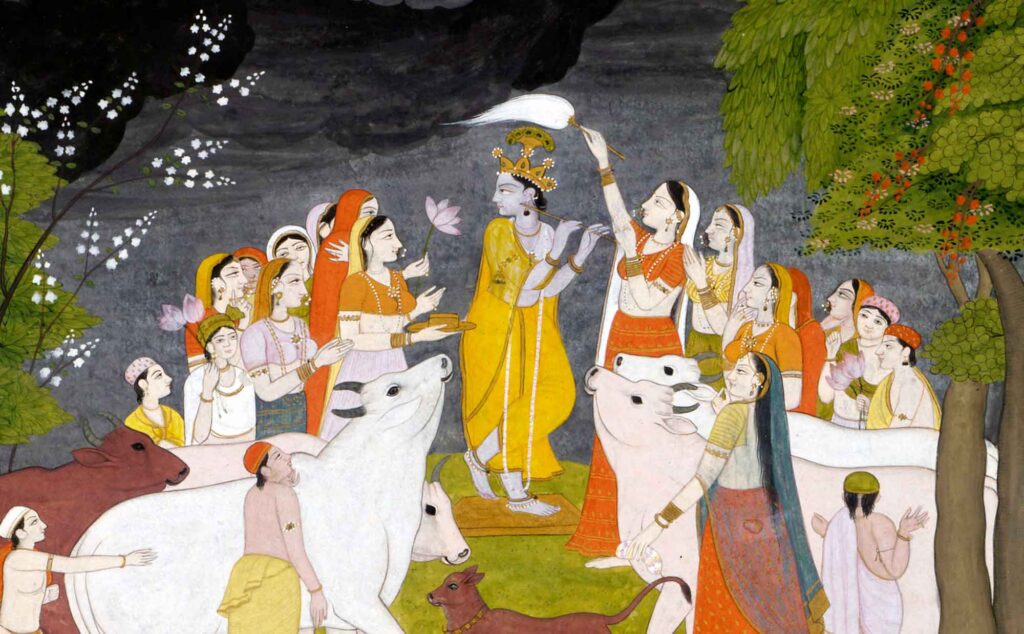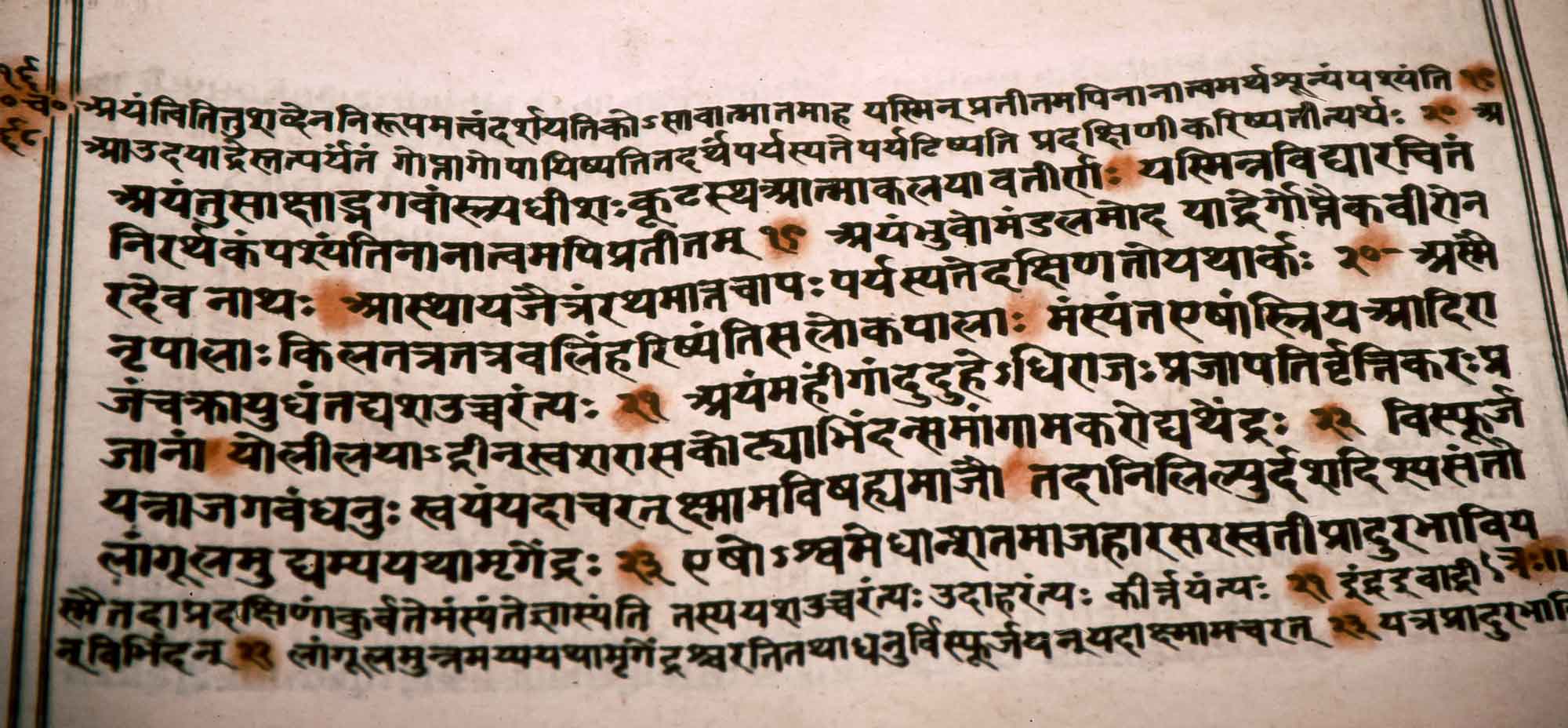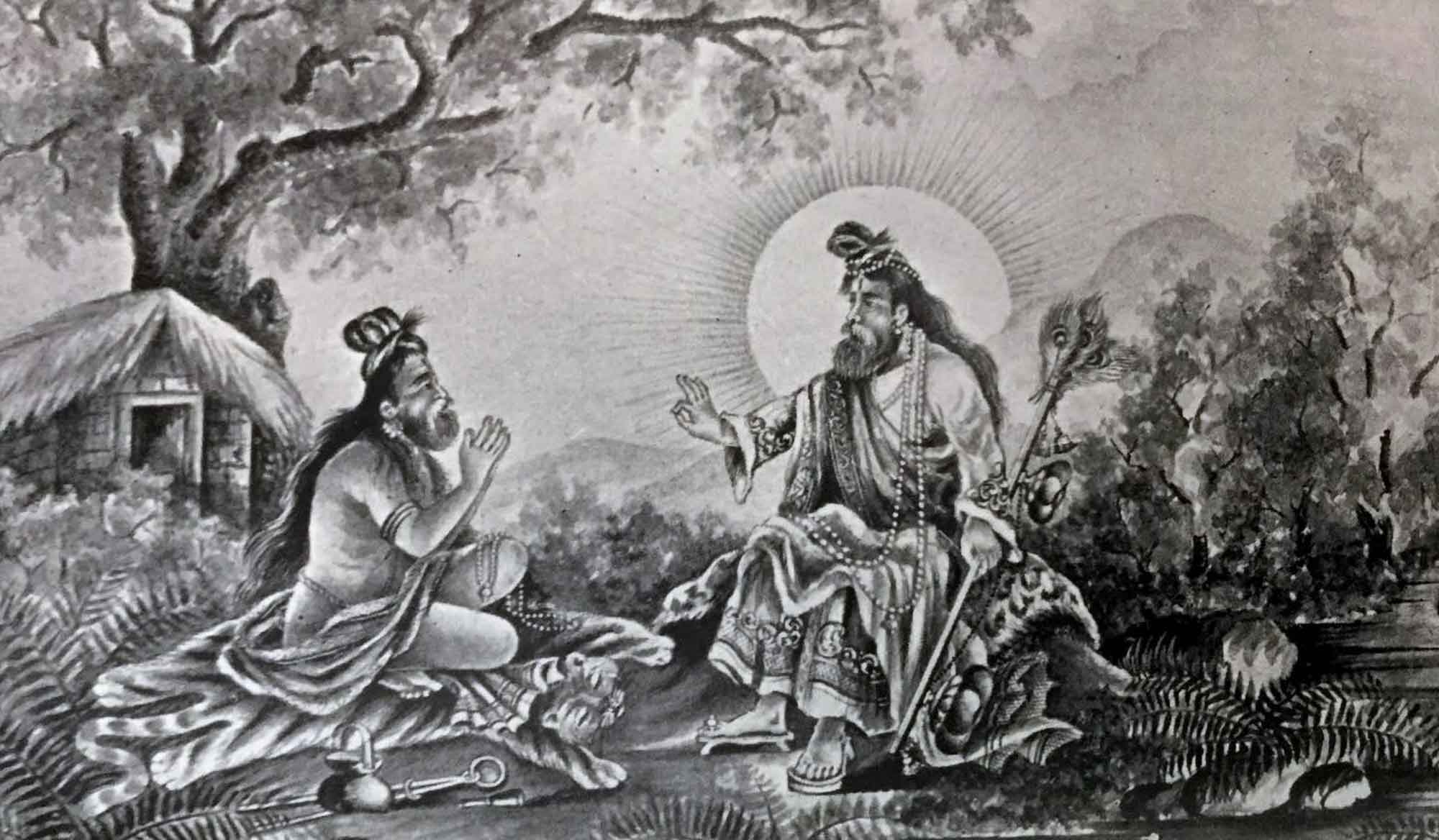Overview
Śrī Śrī Nāma Haṭṭa (The Marketplace of the Holy Name) was first published in Viṣṇupriyā Patrikā, Vol.2 in 1891 In this article, Bhaktivinoda Ṭhākura briefly describes the efficacy of his Nāma Haṭṭa preaching, and explains how the Holy Name and the preacher of the Holy Name must be pure.
(translated by Swami B.V. Giri)
In the twentieth edition of this magazine, we wrote about the topic of Śrī Nāma Haṭṭa (‘the marketplace for the Holy Name’). After that, I received the first, second and third order for the Śrī Śrī Godruma Kalpaṭavī booklet. Then after that, I also received a few orders for Śrī Vaiṣṇava Siddhānta Mālā. After reading all these small booklets, we came to the conclusion that the work of Śrī Śrī Nāma Haṭta has begun in a real way. The main place for this ‘marketplace’ is Godruma-kṣetra which is within Śrīman Navadvīpa-dhāma. There are some Vaiṣṇavas chanting pure hari-nāma who are engaged in the activities of the Nāma Haṭṭa. In different places, there are many Vaiṣṇavas chanting the Name that are preachers of this ‘marketplace.’ Those who were setting up a prapannāśrama (an āśrama where one surrenders to Kṛṣṇa) in a village or town and propagating the Name are known as dokāndāra or vipaṇipati (shopkeepers). Those who go from village to village to spread the Holy Name will be known as paśārī or vrājakabinī (travelling salesmen). We have published all the various names of the workers in Godruma Kalpaṭavī. Some of them are renounced Vaiṣṇavas, some are gosvāmī-santāna (descendants of Advaita or Nityānanda) and some are often householder Vaiṣṇavas. Some songs about the Holy Name have been published in Siddhānta Mālā. Seeing all this our heart becomes joyful. It seems that Śrīmad Gaurāṅga Prabhu, the deliverer of the people of this world, wishes to distribute śuddha-nāma to the world again as He did before. We hope that in a very short period of time, the Vaiṣṇava dharma preached by Śrīman Mahāprabhu will purify the world.
We only have one doubt about this. The significance of Śrī Nāma Haṭṭa is that hari-nāma must be propagated to the world in its purest form. In order to preach purely, first the Name must be pure, second the preachers must be pure, and third the customer is required to become pure. Purity of the Name is there when the Name and narrations of Bhagavān’s līlā are preached, devoid of any hint of jñāna, karma etc. From all the names I have seen in Siddhānta Mālā, it seems that śuddha-nāma will be preached. The purity of the preacher is essential. There are songs about the Holy Name everywhere, however after having heard it we become very despondent to see the impurity of the preacher. Maybe, the Name appears out of relief if there is disease in a village, or some people chant the Name to alleviate fear. The Name that comes from a desire for bhukti or mukti arises from a polluted heart and that is pratibimba-nāmābhāsa (a semblance of a reflection of the Name). It is impossible for the jīva to attain eternal auspiciousness from this. If the honourable vipaṇipati and vrājakabinī have no such desires, then śuddha-nāma will be preached by them. The purpose of the ‘market’ will not be successful if they work with the hope of getting money or by trying to gain fame amongst the public. The more they are aware of this, the better the ‘market’ will be. Observing the method of how they work, we feel that all the dokāndāra and paśārī are the recipients of Śrīman Nityānanda Prabhu’s mercy. We have heard from a faithful gentleman that a renunciant, before going to a village to preach the Holy Name as a paśārī, announced, “O village friends, I live by begging, but today I did not come to beg. I have come in order to preach about śuddha-nāma. So no one should give any money to me as bhikṣā. I will come the next day to beg for my necessities.” After this announcement, he spoke about the glories of the Holy Name and sang śuddha-nāma to the satisfaction of the villagers to such an extent that many took up chanting the Name and attained bhakti. There is no doubt that those who preach the Name in such a selfless manner will be revered everywhere, and undoubtedly, the transcendental results of śuddha-nāma will very soon destroy the darkness of fallacious arguments.
Having discussed all these issues, we hope that the marketplace of the Holy Name will expand in a very short time. The deceit that has entered into the sampradāya of Śrīman Gaurāṅga will gradually disappear, and eventually, the victory flag of śuddha-nāma will be hoisted, both here and in foreign countries. O pure devotees! The Vaiṣṇava dharma as propagated by Śrīman Gaurāṇga is the ultimate treasure of the jīvas of this world. All the dharmas that are being pompously propagated in the country today are completely flawed and incomplete. A happy time will be upon us when all those dharmas become weak and hide in their respective fortresses, and the supreme dharma will advance and spread to all countries. Now all of you become determined and nourish this Śrī Nāma-Haṭṭa! In all the provinces of Bhārata-varṣa, the devotees of Śrīmad Gaurāṅga, the honourable vrājakabinīs, have set up shops to promote śuddha-nāma, propagating the message of the Lord of our hearts, Śrī Gaurāṅga and His hari-nāma, which delivers the world. May they give us satisfaction with such deeds. All glories to Śrī Gaurāṅga-Viṣṇupriyā! All glories to Śrī Nityānanda and Jāhnavī! All glories to Sītānātha! All glories to Śrī Navadvīpa-dhāma! All glories to the pure Name of Hari! All glories to Śrī Nāma Haṭṭa!













